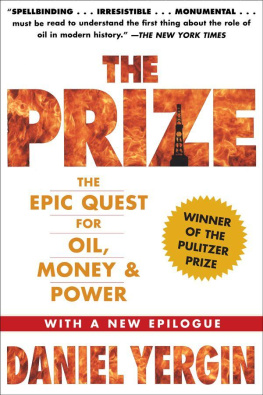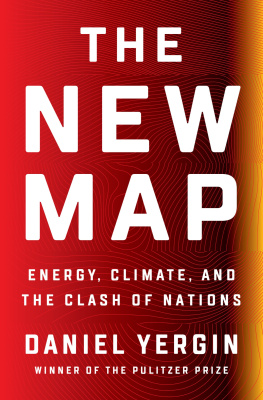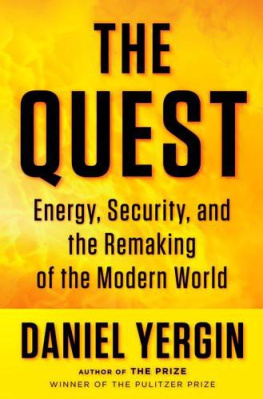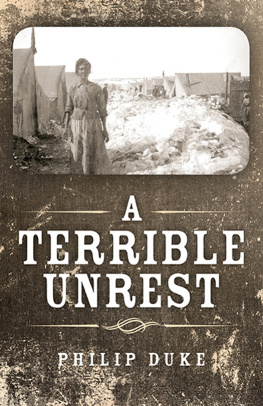
International Acclaim for The Prize
Monumental analysis of the history and politics of oil Engagingly written and a landmark of research.
Newsweek
If you want to know what really makes the world go round, Yergins colorful history of the petroleum industry is indispensible.
Time
Deserves to become the standard text on the history of oil.
Leslie H. Gelb, front page, The New York Times Book Review
There is no doubt about Yergins basic thesis: Oil is power, big power Yergin rightly has a lot to tell us.
Theodore C. Sorensen, front page, The Washington Post Book World
A compelling history that clarifies the contemporary world situation.
Los Angeles Times
Yergin has not written the history of oil but the history of the world from the point of view of oil. And he has written it very well, with an eye for the relevant and often amusing detail. He marveled at his discoveries and, thanks to his great literary gifts, he is able to make us marvel as well. Yergin is finally as much a psychologist as he is a geologist and a historianone who knows that oil is somewhere, deep down, in everybodys emotions under two other names: wealth and power.
Robert Mabro, front page, Chicago Tribune Book World
Impressive mastery Daniel Yergin is as well equipped as anyone to build the bridge between oil and world diplomacy. He attempts nothing less than a rewriting of world history, to bring oil out of the garage into the cabinet-rooms.
Anthony Sampson, author of The Seven Sisters, The Spectator
More than a gripping tale of international politics, The Prize chronicles oils role in shaping the twentieth centurys Hydrocarbon Society of expressways, suburbsand pollutionas well as Hydrocarbon Man, who shows little inclination to give up the conveniences of automobiles, suburban homes and other oil-based essentials of life.
Atlanta Constitution
Dazzling. a masterful study of how oil has dominated and shaped world events in the twentieth century.
Jeremy Campbell, London Evening Standard
The best history of oil ever written. Yergins account [of World War II] is utterly persuasive and downright gripping. The Prize bringsour knowledge of the twentieth centurythe Age of Oilinto sharper focus.
Business Week
This is a book about greed, ambition and the lust for power. It is about the people who have made the oil industry what it isfrom Sheikh Yamani and George Bush to Armand Hammer and Saddam Hussein. Yergin is a wonderful storyteller.
Stephen Butler, Financial Times of London
Compulsive reading. Daniel Yergins new book must be required reading for everyone from the Prime Minister to the new Desert Rats.
London Daily Mail
Strongly recommended.
Conor Cruise OBrien, Times Literary Supplement
The Prize is the story of how a mere commodity has shaped the politics of the twentieth century and profoundly changed the way we lead our lives a significant book
Houston Chronicle
Compelling and comprehensive. his narrative proceeds like a developing photograph of our times.
The New Yorker
Fascinating. The Prize revels in the drama.
The Economist
Remarkable. an incredible work exciting and easy to read. Compulsory reading for politicians and top officials [and] anyone concerned with an accurate history of this century.
Peter Walker, former UK Secretary of State for Trade and Industry, The Independent
Captivating. readers will be well rewarded. Without oil, it would be impossible to think of Americas place in the world.
Asahi Shimbun, Tokyo
The Prize manages to be both serious socio-economic history and wonderful entertainment. Yergin has a real knack for making his characters come alive. Oil as a force of history has become bigger than nations or individuals.
Far Eastern Economic Review
It would be impossible to fully understand the age of oil, without reading The Prize by Daniel Yergin. The Prize is beyond exceptional it is an entrancing tale of promoters, industrialists, and politicians; it is packed with historical detail but written with richness and intrigue
Jeff Sandefer, The National Review
Impeccably researched and fluently written You cant read Yergins account of the improbable cast of characters who built the modern oil business without marveling at the role of luck and accident in any process of economic creation.
George Gendron, Inc. Magazine
A magnificent epic story. The Century of Oil will continue into the next century.
Nihon Keizai Shimbun, The Japan Economic Journal
Books by
Daniel Yergin
Author
Shattered Peace: Origins of the Cold War
Coauthor
The Commanding Heights: The Battle for the World Economy
Energy Future
Global Insecurity
Russia 2010

FREE PRESS
A Division of Simon & Schuster, Inc.
1230 Avenue of the Americas
New York, New York 10020
www.SimonandSchuster.com
Copyright 1991, 1992, 2008 by Daniel Yergin
Epilogue copyright 2008 by Daniel Yergin
Title logo copyright 1992 by WGBH Educational Foundation
All rights reserved, including the right to reproduce this book or portions thereof in any form whatsoever. For information address Free Press Subsidiary Rights Department, 1230 Avenue of the Americas, New York, NY 10020.
This Free Press trade paperback edition December 2008
FREE PRESS and colophon are trademarks of Simon & Schuster, Inc.
Designed by Irving Perkins Associates, Inc.
Manufactured in the United States of America
1 3 5 7 9 10 8 6 4 2
The Library of Congress has cataloged the Simon & Schuster edition as follows:
Yergin, Daniel.
The prize: the epic quest for oil, money, and power / Daniel Yergin.
p. cm.
Includes bibliographical references and index.
1. Petroleum industry and tradePolitical aspectsHistory20th century.
2. Petroleum industry and tradeMilitary aspectsHistory20th century.
3. World War, 19141918Causes. 4. World War, 19391945Causes.
5. World politics20th century.
I. Title.
HD9560.6. Y47 1990
338.27820904dc20 90-47575
CIP
ISBN-13: 978-1-4391-1012-6
eISBN-13: 978-1-4391-3483-2
ISBN-10: 1-4391-1012-3
Lyrics on page 536 1962 Carolintone Music Company, Inc. Renewed 1990.
Used by permission.
Poem on pages 688689 from The Intellectual Adventure of Ancient Man
by H. and H. A. Frankfort, John A. Wilson,
and Thorkild Jacobsen, page 142, 1946
The University of Chicago. Used by permission.
To Angela, Alexander, and Rebecca
Contents
List of Maps
Prologue
WINSTON CHURCHILL CHANGED his mind almost overnight. Until the summer of 1911, the young Churchill, Home Secretary, was one of the leaders of the economists, the members of the British Cabinet critical of the increased military spending that was being promoted by some to keep ahead in the Anglo-German naval race. That competition had become the most rancorous element in the growing antagonism between the two nations. But Churchill argued emphatically that war with Germany was not inevitable, that Germanys intentions were not necessarily aggressive. The money would be better spent, he insisted, on domestic social programs than on extra battleships.
Next page












